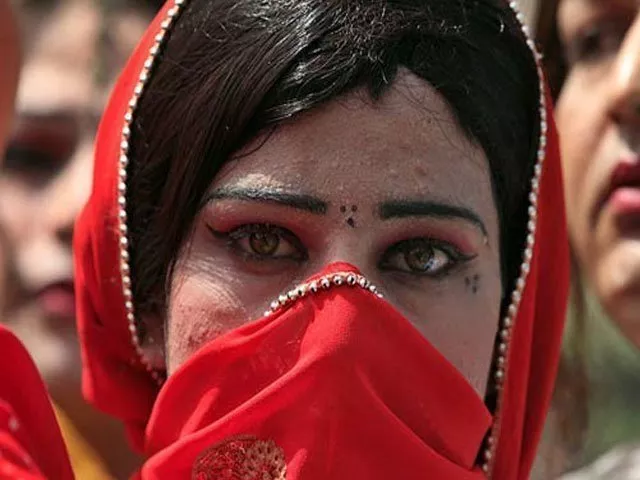Transgenders feel left out of Covid-19 aid conversation
Say almost all their sources of income have been shuttered during lockdown
ISLAMABAD:The two-week-long lockdown in the federal capital has just been extended further to curb the spread of the novel coronavirus (Covid-19) pandemic. While many have shifted to a system of continuing their daily work or studies online, this is not possible for those involved in the service sector, particularly for members of the marginalised transgender community who are now staring at starvation in the absence of targeted support, community members claim.
The curfew-like lockdown has been nothing short of an apocalypse for people like us, said Nadeem Kashish, a transgender in the federal capital who heads the non-governmental organisation (NGO) Safar, which works for the welfare of people who are transgender.
Kashish said that there are at least 3,000 people who are transgender living in the federal capital. Most live in confined quarters in segregated parts of the city’s slums and make a living working at some beauty salons, work as domestic help, or perform at public events such as weddings, while others still may traverse the length and breadth of the city’s posh and commercial areas seeking alms.
“Most people who are transgender work in the services sector such as beauty salons,” Kashish explained, adding that a ban on public events, the closure of beauty salons and commercial markets except for grocery and dairy stores during certain times of the day has robbed these people of their major sources of income.
This scenario, Kashish explained, was nothing short of a ‘nightmare’ where they have been pushed close to death.
Most wedding halls and people who host grand events at their homes used to give us a portion of their leftover food once their events concluded, but with all mass gatherings suspended due to the pandemic, they do not have access to this source of food either.
“The police do not allow us to step outside our residences, and if we do step out, we are arrested and put into police lockups,” she said, complaining that they have little to no choices left.
No one has even talked about us [amid government plans to provide cash grants and food packages to the destitute] in such a situation [Covdi-19 lockdown], she complained, arguing that even when welfare organisations or politicians express concerns about the unprivileged daily wage workers, labourers and other destitute people, they are left out of that conversation and thus placing them outside the consideration for support.
“Being born a transgender in our society is nothing less than a pejorative,” Kashish said despondently, adding that when their loved ones discover that they were born differently, they are abandoned by their families and friends.
Kashish said that many members of the transgender community are currently living in a building complex operated by Safar in the suburban area of Bari Imam in extreme difficulty. She urged Prime Minister Imran Khan, the Ministry of Human Rights and other welfare organisations in the city to help them during such hard times.
One philanthropic outlet, a weekly public food distribution campaign run by UN goodwill ambassador Muniba Mazari and some people who are transgender came to a halt in late March. Mazari had stated that they would not be able to hold the grand weekly food distribution programme anymore due to social distancing considerations, though the food will continue to be distributed amongst the destitute without elaborating further.
Published in The Express Tribune, April 9th, 2020.


COMMENTS
Comments are moderated and generally will be posted if they are on-topic and not abusive.
For more information, please see our Comments FAQ